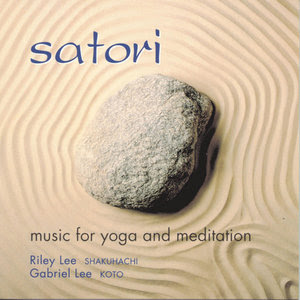
Oriental Sunrise - Riley Lee
Centuries of advancements in musical instruments have bypassed the traditional shakuhachi flute, an ancient instrument formed from bamboo root and equipped with just five finger holes. Its tender, ethereal tone thus remains essentially unaltered since its distant origins in Japan, and in the hands of a master player such as Riley Lee, an Australian, it sings to our spirits with a graceful gentleness that seems just beyond the reach of modern instruments. Lee here performs a series of duets with a koto, a stringed instrument with a harp- or zither-like character (performed by a trio of players), evoking moods of serenity and calm, carrying away your concerns on the receding mists of a golden dawn. Sweet, not shrill, Lee's gentle playing (accented by the sounds of surf at the disc's opening and close) is easily accessible to Western ears and is well-suited for meditation and massage. The combined run time of the disc's four tracks exceeds 56 minutes.
FLAC Format


